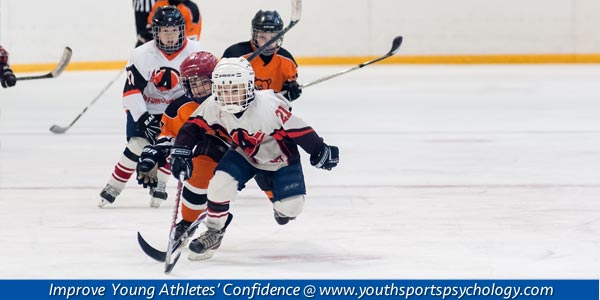Pre-Game Stress In Youth Sports
Are your sports kids stressed before games?
Do you know the signs and causes of stress in young athletes?
Stress can really undermine kids’ confidence and success. And that hurts their performance and happiness.
We talked to Debbie Mendel, a stress management expert and author of the book, “Addicted to Stress,” to find out how sports parents can identify and cope with stress in young athletes.
First of all, there’s good stress and bad stress in youth sports, Mandel told us.
The good stress, or what Mandel calls acute stress, takes the form of pre-game or pre-competition jitters that jump-start a young athlete’s body into performing well, she says.
If your child experiences pre-game butterflies or nervousness, understand that it’s a good thing and will help them focus better.
Bad stress, on the other hand, is chronic. It can zap a young athlete’s energy and vitality.
What are the signs that a young athlete is stressed in bad ways?
Often, stress manifests itself physically. Kids and teens will experience digestive problems, stomachaches, fatigue and irritability. They’ll find it’s harder to concentrate and may be more prone to accidents.
What causes this kind of stress?
Many sports kids feel stressed when they’re driven—either internally or externally–to perform well, Mandel says.
Sometimes parents push their kids to perform well; sometimes young athletes feel the need to perform well to prove themselves and gain approval and applause, she says.
As a sports parent, you can help ensure your kids benefit from good stress and minimize bad stress.
First of all, to minimize chronic stress, keep your expectations in check. When you push your kids too hard to perform well, they often end up under-performing.
Kids take on your expectations as their own, then feel frustrated if they can’t meet these expectations. That can lower their confidence.
For kids who are driven internally to perform at high levels, help them let go of high expectations. Tell them to focus on playing one shot at a time and concentrating on the moment—instead of thinking about statistics or scores.
“Watch your body language,” Mandel says. “You may tell your kids you’re fine that they lost the game, but your face and hands may tell them something else.”
It’s also important to help kids come back after failure, Mandel says. Learning how to overcome mistakes or failure helps kids reduce stress and become more resilient, she says.
As Mandel says, stress can really hurt your kids’ confidence and undermine their overall experience in sports.
Related Articles on Kids’ Mental Game:
- Teaching Sports Kids Pregame Plans
- Helping Kids Build Resiliency in Sports
- Kids Who Struggle with Pregame Nerves
*Subscribe to The Sports Psychology Podcast on iTunes
*Subscribe to The Sports Psychology Podcast on Spotify
Improve Your Mental Game From Anywhere In The World

We’re certain that, as a parent, you want to help your child develop confidence and discipline in sports and life. And as a sports parent, you’d love for your children to reach their potential in sports. But encouraging your child to strive for greatness without pressuring them can be a challenge.
You can get expert mental coaching with us from anywhere. Meet with us via Zoom, Skype, FaceTime or phone call. With today’s video technology, we are able to connect with athletes and coaches all over the globe.
Call Us Today to Schedule Your Free 15-Minute Session.
Find Out How Your Athlete Can Benefit From One-on-One Mental Coaching!


I have a 12 year old daughter that love playing volleyball and golf but she has bad stress and nerves before all her games that influence her performance. Especially in golf she is so tight that she cannot hit her normal shots. Where do I start to help her?
Thanks,
Philip
I have a 12 year old daughter that love playing volleyball and golf but she has bad stress and nerves before all her games that influence her performance. Especially in golf she is so tight that she cannot hit her normal shots. Where do I start to help her?
Thanks,
Philipe